The use of rat poison poses a grave threat to bird populations. Birds can be directly exposed to rat poison through consumption or indirectly through secondary ingestion.
When birds accidentally ingest rat poison, they can suffer severe consequences that affect their health and survival. Eventually, they can die instantly or a very hours later.
If you are well aware of the impacts of rat poison on birds, you can directly take part in conservation efforts and promote the responsible use of rodenticides.
In this discussion, we will explore the dangers posed by rat poison to birds and the potential ramifications for their populations.
So if you didn’t have any idea about this fact, please concentrate.
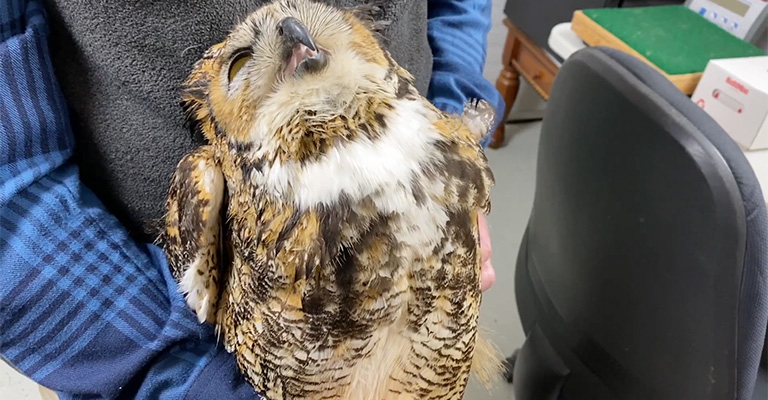
Symptoms of Rat Poisoning Birds
Let’s first start with a clear discussion of what can happen if your bird consumes rat poison. Here are some common symptoms that birds may exhibit if they have been poisoned by rat poison:
Bleeding
Excessive bleeding or hemorrhaging is a significant symptom of rodenticide poisoning in birds. They may experience bleeding from the beak, mouth, nose, eyes, or wounds. Internal bleeding may also occur, which is not immediately visible but can lead to weakness and organ damage.
Weakness and Lethargy
Poisoned birds often exhibit signs of weakness, fatigue, and lethargy. They may have difficulty flying, perching, or even standing upright. This lack of energy is due to the detrimental effects of the toxin on their overall health and immune system.
Respiratory Distress
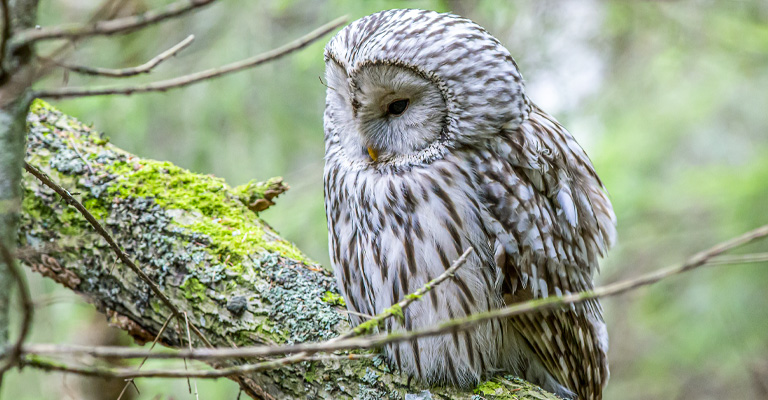
Birds affected by rat poison may experience respiratory difficulties. They may exhibit rapid or labored breathing, gasping for air, or open-mouthed breathing. These respiratory symptoms can be a result of internal bleeding or organ damage caused by the poison.
Loss of Coordination
Poisoned birds may display a loss of coordination, including wobbling or stumbling while walking or flying. They may have difficulty maintaining balance and appear disoriented or unsteady.
Weight Loss
Rodenticides can impact the bird’s appetite and digestive system. Affected birds may experience a loss of appetite, resulting in weight loss over time. Reduced food intake can further weaken the bird’s condition and delay its recovery.
Abnormal Behavior
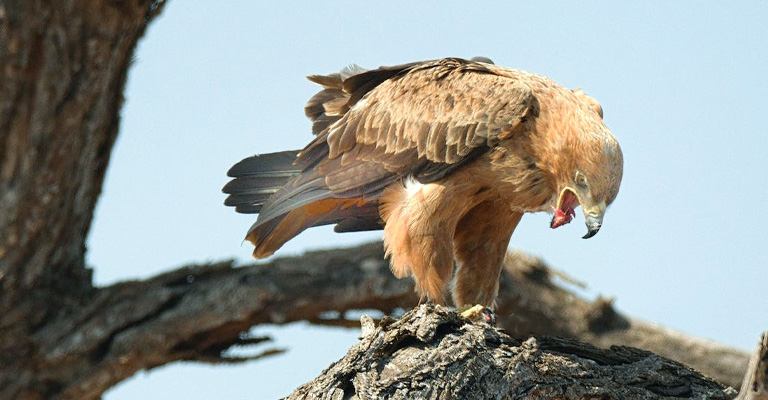
Birds suffering from rat poisoning may exhibit abnormal behavior such as agitation, restlessness, or repetitive movements. They may also appear disoriented or confused, flying into objects or being unable to navigate their surroundings effectively.
Neurological Symptoms
In some cases, poisoned birds may display neurological symptoms. These can include tremors, seizures, muscle spasms, or paralysis. These signs indicate severe poisoning and require immediate veterinary attention.
Effects of Rat Poison on Birds
If your bird manages to survive after consuming rat poison, it might have some long-term effects for the poison. Here are some common effects that your bird might have after the incident.
Secondary Poisoning
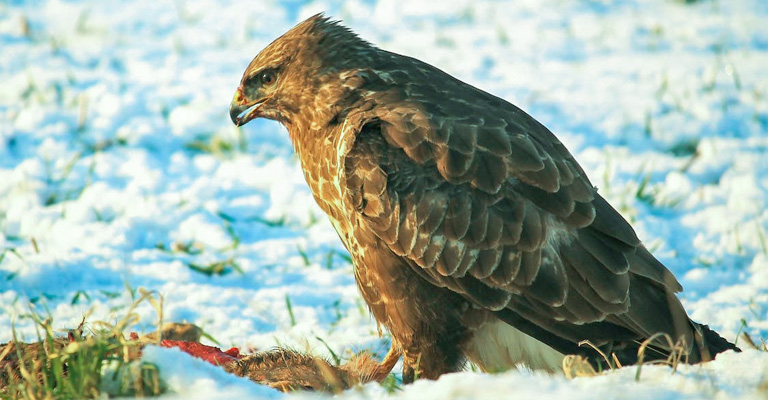
The primary concern for birds is secondary poisoning. When rodents consume rat poison, the toxic substances accumulate in their bodies.
Birds of prey, such as owls, hawks, and eagles, feed on these poisoned rodents, inadvertently ingesting the toxic chemicals present in their prey. This secondary poisoning can have fatal consequences for the birds.
Potential Long-term Effects on Bird Populations
The long-term effects of rat poison on bird populations can be far-reaching and concerning. As birds continue to be exposed to rat poison over time, the accumulation of toxic substances in their bodies can lead to chronic health issues.
This can weaken their immune systems, making them more susceptible to diseases and other environmental stressors. Over time, the reduced survival and reproductive success of poisoned birds can result in declining populations and potentially even local extinctions.
Anticoagulant Effects
Most rodenticides contain anticoagulant compounds that disrupt the blood clotting process. These compounds inhibit the production of vitamin K, a crucial component for blood clotting.
As a result, birds that consume poisoned rodents or directly ingest rodenticides may experience uncontrollable bleeding from even minor injuries or wounds. Internal bleeding can occur as well, leading to organ damage and potential death.
Weakening of the Immune System
Rat poison can also weaken the immune system of birds, making them more susceptible to diseases and infections.
When exposed to rodenticides, birds may experience a decline in their overall health, making it harder for them to recover from injuries or fight off infections. This weakened immune system further compromises their chances of survival.
Reproductive Issues
Birds that consume rodents tainted with rat poison or directly ingest rodenticides can experience reproductive issues. The toxic chemicals can affect the birds’ ability to reproduce successfully, leading to decreased breeding success rates and population decline.
This impact on reproductive capabilities poses a long-term threat to bird populations and their overall sustainability.
Impact on Ecosystem
Birds of prey play a vital role in maintaining the ecological balance of their habitats. By preying on rodents, they help control their populations, which, in turn, prevents the spread of diseases and preserves the ecological integrity of an area.
The presence of rat poison disrupts this delicate balance by reducing the bird population, allowing rodent populations to surge unchecked. This can lead to an overabundance of rodents and subsequent ecological problems.
Treatment of Rat Poisoning Birds
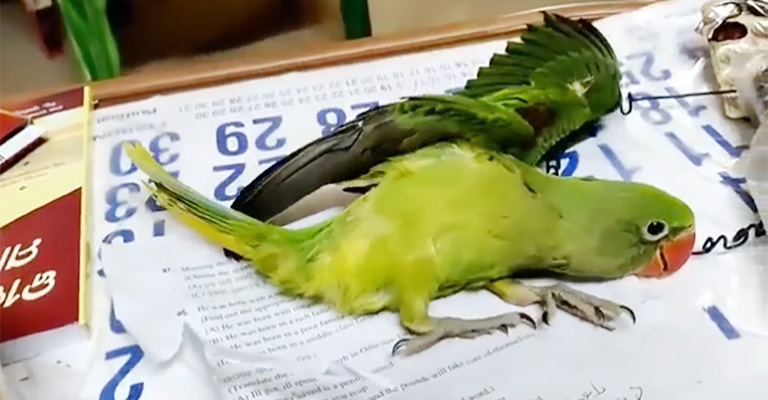
The specific treatment approach may vary depending on the severity of the poisoning and the individual bird’s condition. Here are some general steps that may be taken.
Stabilization
The first step in treating a poisoned bird is to stabilize its condition. This may involve providing supportive care, such as maintaining a warm and quiet environment to reduce stress, and ensuring the bird is hydrated and receiving proper nutrition.
Stabilization may also involve addressing any immediate life-threatening symptoms, such as controlling bleeding if present.
Decontamination
If the bird has recently ingested the rodenticide, decontamination methods may be employed. This can include inducing vomiting or administering activated charcoal to absorb the toxin and prevent further absorption into the bird’s system.
Decontamination procedures should be performed by a trained professional to minimize the risk of aspiration or other complications.
Vitamin K Therapy
Rat poisons typically inhibit the production of vitamin K, which is necessary for blood clotting. Administering vitamin K supplementation is a common treatment approach for poisoned birds.
The dosage and duration of vitamin K therapy will depend on the severity of the poisoning and the bird’s response to treatment.
Regular monitoring of the bird’s clotting parameters, such as prothrombin time, may be necessary to adjust the treatment regimen as needed.
Supportive Care
During the recovery period, the poisoned bird may require ongoing supportive care. This can involve providing a suitable diet, and fluids if needed, and monitoring the bird’s general health and progress.
Supportive care may also include managing any complications or secondary infections that arise as a result of the poisoning.
Rehabilitation and Release
Once the bird has recovered and is deemed fit for release, a gradual rehabilitation process may be initiated. This can involve reconditioning the bird’s flight and hunting abilities in a controlled environment to ensure it can survive in the wild.
Rehabilitation and release should be carried out following established protocols and guidelines to maximize the bird’s chances of successful reintegration into its natural habitat.
Addressing the Issue
It is very essential to mitigate the harmful effects of rat poison on birds. However, you can take several measures to identify the issue instantly.
Using Alternatives
Employing alternative methods for rodent control, such as using traps or natural predators like barn owls, can reduce the reliance on rodenticides and minimize the risk to birds of prey.
Safe Usage and Disposal
If the use of rodenticides is necessary, it is crucial to follow proper guidelines and ensure safe usage. This includes placing the poison in secure bait stations that are inaccessible to birds, and properly disposing of rodent carcasses to prevent secondary poisoning.
Raising Awareness
Educating the public about the dangers of rodenticides to birds and promoting bird-friendly rodent control methods can help increase awareness and encourage responsible actions.
Conservation Efforts
Supporting conservation organizations and initiatives that focus on protecting bird populations and their habitats can contribute to the long-term preservation of these species.
By taking these measures, we can work towards minimizing the adverse effects of rat poison on birds, preserving their populations, and maintaining the ecological balance they provide.
FAQs
Rat poison can have both immediate and long-term effects on bird populations. Immediate effects include direct poisoning when birds consume poisoned rodents or indirectly through the consumption of poisoned prey.
Long-term effects can include reduced reproductive success, population decline, disruption of food chains, and impacts on bird behavior and survival.
Yes, certain bird species, such as raptors (e.g., owls, hawks), are particularly vulnerable to rat poison. They can be exposed to rat poison through their consumption of poisoned rodents or secondary ingestion of poisoned prey.
However, other bird species, including waterbirds and songbirds, can also be affected depending on their feeding habits and exposure to contaminated food sources.
The ability of birds to recover from rat poison exposure depends on various factors, including the dose and type of poison, the bird’s overall health, and the timing of intervention.
Prompt veterinary care and removal of the poison source can improve a bird’s chances of survival. However, severe cases of poisoning may have long-lasting or fatal consequences.
Yes, bird-safe pest control methods, such as integrated pest management (IPM) strategies, can effectively manage rodent populations without relying on rat poison.
IPM combines multiple approaches like exclusion, sanitation, trapping, and natural deterrents to address pest infestations while minimizing harm to birds and the environment.
Regulations regarding the use of rat poison vary across jurisdictions. Some countries or regions have restrictions on certain types of rodenticides or require specific labeling to inform users about potential risks to wildlife.
However, enforcement and awareness of these regulations may vary, highlighting the need for continued advocacy and education on bird-safe practices.
Conclusion
The impact of rat poison on bird populations is definitely dangerous and concerning. Birds can suffer immediate poisoning symptoms and long-term effects on behavior, reproduction, and survival.
This not only disrupts ecosystems but also affects other wildlife and biodiversity. By raising awareness, adopting bird-safe practices, and promoting alternatives, we can protect birds and maintain a balanced and thriving environment.
Hope you understand the fact well. Please make sure to share this blog to raise awareness. Thank you for your effort.